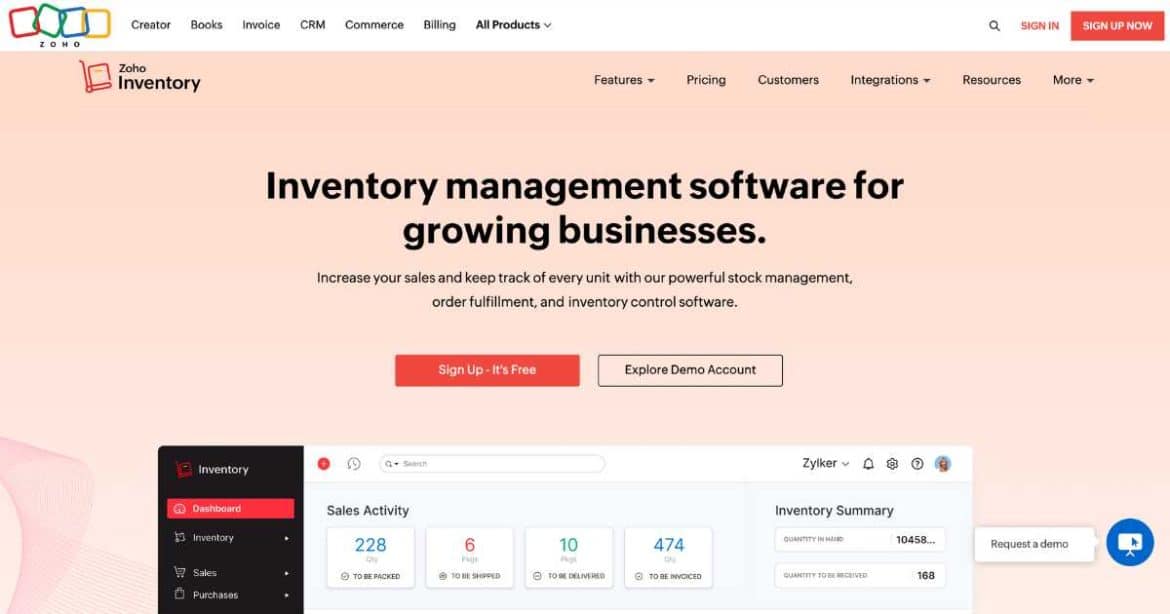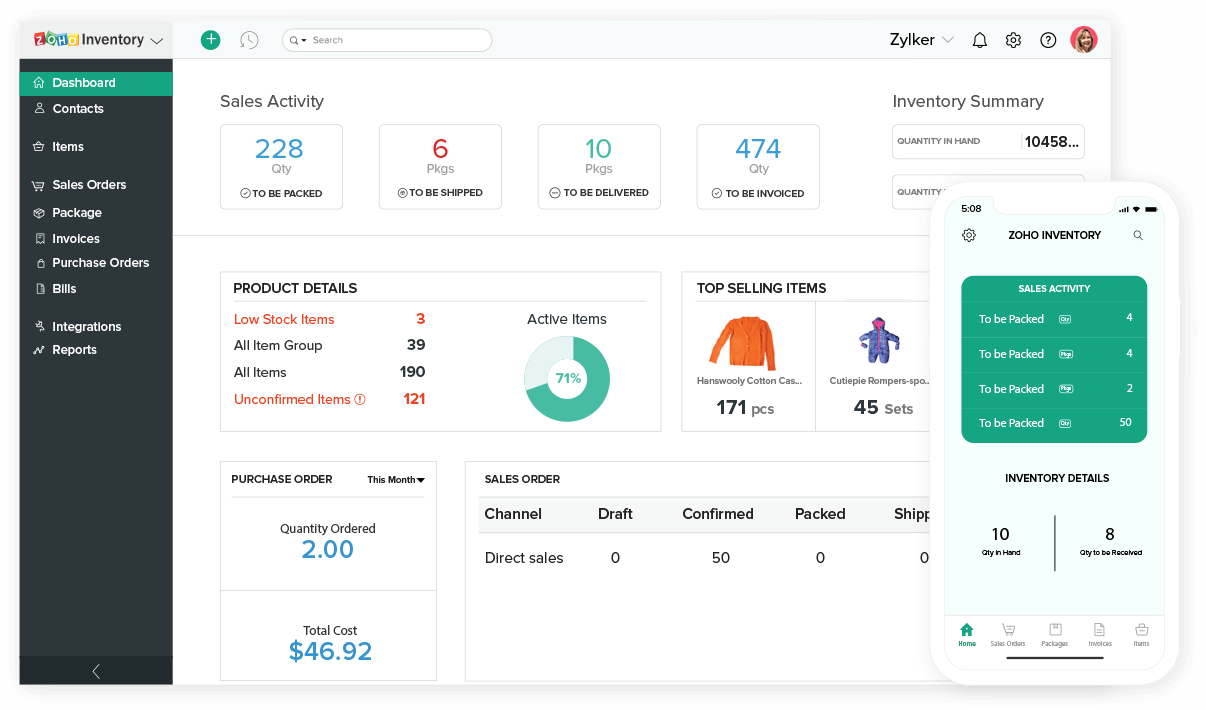Inventory management software small business is an essential tool for businesses looking to optimize their inventory management processes, reduce costs, and enhance customer satisfaction. With a plethora of software solutions available, choosing the right one can be a daunting task.
This guide will provide you with the essential information you need to make an informed decision and unlock the benefits of inventory management software for your small business.
Inventory Management Software Features for Small Businesses

Effective inventory management is crucial for small businesses to optimize stock levels, fulfill orders efficiently, and make informed decisions. Inventory management software provides a comprehensive solution to these challenges, offering a range of features tailored to the specific needs of small businesses.
Key features of inventory management software for small businesses include:
Stock Tracking
Inventory management software enables businesses to track stock levels in real-time, providing visibility into the availability of items across multiple locations. This helps businesses avoid stockouts, optimize inventory levels, and prevent overstocking.
Example: QuickBooks Commerce offers robust stock tracking capabilities, allowing businesses to monitor inventory levels in real-time and receive alerts when stock is running low.
Order Management
Order management is a critical aspect of inventory management. Inventory management software streamlines the order fulfillment process, enabling businesses to process orders quickly and accurately. Features such as order tracking, automated order fulfillment, and shipping integration ensure efficient order processing.
Example: Zoho Inventory provides comprehensive order management capabilities, including order tracking, inventory allocation, and shipping integration with major carriers.
Reporting
Inventory management software provides detailed reporting capabilities, enabling businesses to analyze inventory data and make informed decisions. Reports on inventory levels, sales trends, and stock performance help businesses identify areas for improvement and optimize their inventory management strategies.
Example: NetSuite offers advanced reporting features, including customizable reports, dashboards, and analytics that provide insights into inventory performance and help businesses make data-driven decisions.
Choosing the Right Inventory Management Software
Selecting the right inventory management software for your small business is crucial to streamline operations and optimize inventory levels. Consider factors such as your business size, industry, and specific needs when making your decision.
To help you navigate the selection process, we’ve compiled a table comparing different software solutions based on features, pricing, and ease of use. Additionally, we provide tips for evaluating software demos and gathering feedback from other businesses to ensure you make an informed choice.
Comparing Software Solutions
| Feature | Software A | Software B | Software C |
|---|---|---|---|
| Inventory Tracking | Real-time updates, multiple locations | Limited to one location, manual updates | Advanced tracking with barcode scanning |
| Order Management | Integrated with online store, automatic order processing | Separate order management system required | Customizable order workflows |
| Reporting and Analytics | Detailed inventory reports, customizable dashboards | Basic reporting, limited data analysis | Advanced analytics with forecasting and trend analysis |
| Pricing | Subscription-based, tiered pricing | One-time purchase, additional fees for updates | Free for basic features, premium plans available |
| Ease of Use | Intuitive interface, user-friendly navigation | Complex interface, requires training | Simple setup, minimal learning curve |
Evaluating Software Demos
- Schedule a demo to see the software in action.
- Prepare a list of specific questions to ask the vendor.
- Focus on features that are most relevant to your business needs.
- Test the software’s functionality and ease of use.
- Ask for a trial period to thoroughly evaluate the software.
Getting Feedback from Other Businesses
- Connect with other small businesses in your industry.
- Attend industry events and ask for recommendations.
- Read online reviews and testimonials from previous customers.
- Consider using a software review platform to compare solutions.
- Seek referrals from trusted sources.
Implementing Inventory Management Software

Implementing inventory management software in a small business can streamline operations and enhance efficiency. Here’s a step-by-step guide to help you navigate the process.
To ensure a smooth implementation, consider the following best practices:
Data Migration
- Export data from your existing system into a compatible format.
- Cleanse and validate data to ensure accuracy and consistency.
- Import data into the new software, verifying its integrity.
Training Staff
- Provide comprehensive training on software functionality and best practices.
- Offer hands-on training to familiarize staff with the system’s interface.
- Create user guides and reference materials for ongoing support.
Integration with Other Business Systems
- Establish seamless integration with your accounting, CRM, and POS systems.
- Ensure data flows smoothly between systems to avoid discrepancies.
- Consider using APIs or middleware to facilitate integration.
Troubleshooting Tips
- Identify and address data errors promptly to maintain accuracy.
- Regularly back up your inventory data to prevent data loss.
- Seek support from the software vendor or a certified consultant if needed.
Resources for Support
- Contact the software vendor for technical assistance and updates.
- Join online forums or user groups to connect with other users.
- Consult with an IT professional or inventory management expert for guidance.
Best Practices for Inventory Management

Effective inventory management is crucial for small businesses to optimize operations, reduce costs, and enhance customer satisfaction. By leveraging inventory management software, businesses can implement best practices that streamline processes and improve inventory accuracy.
Inventory forecasting helps businesses predict future demand based on historical data, seasonal trends, and market conditions. This enables them to maintain optimal stock levels, avoiding both overstocking and stockouts. Stock optimization involves analyzing inventory turnover rates, lead times, and safety stock levels to determine the most cost-effective inventory levels.
Warehouse Management, Inventory management software small business
Efficient warehouse management is essential for inventory optimization. Proper warehouse layout, inventory tracking systems, and automated processes can significantly improve inventory accuracy and reduce handling costs. Implementing barcode scanning, RFID tags, and inventory management software can streamline receiving, storage, and shipping processes.
Case Study: Acme Corporation
Acme Corporation, a leading manufacturer of industrial equipment, implemented an inventory management software solution. By leveraging inventory forecasting and stock optimization features, they reduced their inventory carrying costs by 15% and improved customer order fulfillment rates by 20%.
Wrap-Up: Inventory Management Software Small Business

In conclusion, inventory management software is a game-changer for small businesses looking to streamline their operations, reduce costs, and enhance customer satisfaction. By carefully evaluating your needs, choosing the right software, and implementing it effectively, you can unlock the full potential of inventory management software and drive your business towards success.
FAQ Overview
What are the key features of inventory management software for small businesses?
Essential features include stock tracking, order management, reporting, and integration with other business systems.
How can inventory management software benefit my small business?
Benefits include improved efficiency, reduced costs, enhanced customer satisfaction, and better decision-making.
How do I choose the right inventory management software for my business?
Consider factors such as the size of your business, your specific needs, the features offered by different software solutions, and the cost.